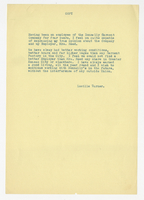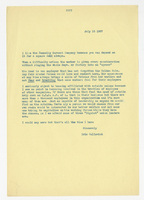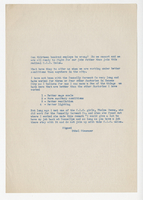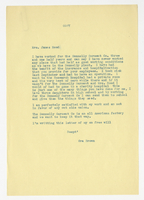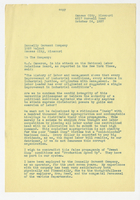Bursting at the Seams: Union Conflicts at the Donnelly Garment Company
Though written at a time when the Donnelly Garment Company (DGC) and International Ladies Garment Workers’ Union (ILGWU) were engaged in fierce legal battles, the letters written by DGC workers primarily offer a positive argument about working conditions, wages, and collegiality on the factory floor. Few letters explicitly mention the ILGWU or its president, David Dubinsky. Many of the letter writers who did address the ILGWU’s organizing campaign simply expressed their belief that affiliating with the international union would not improve their work lives, and they were unwilling to give up their right to represent themselves. Other letters suggest that the authors’ opposition to the ILGWU was more darkly rooted in antisemitism and nativist attitudes.

